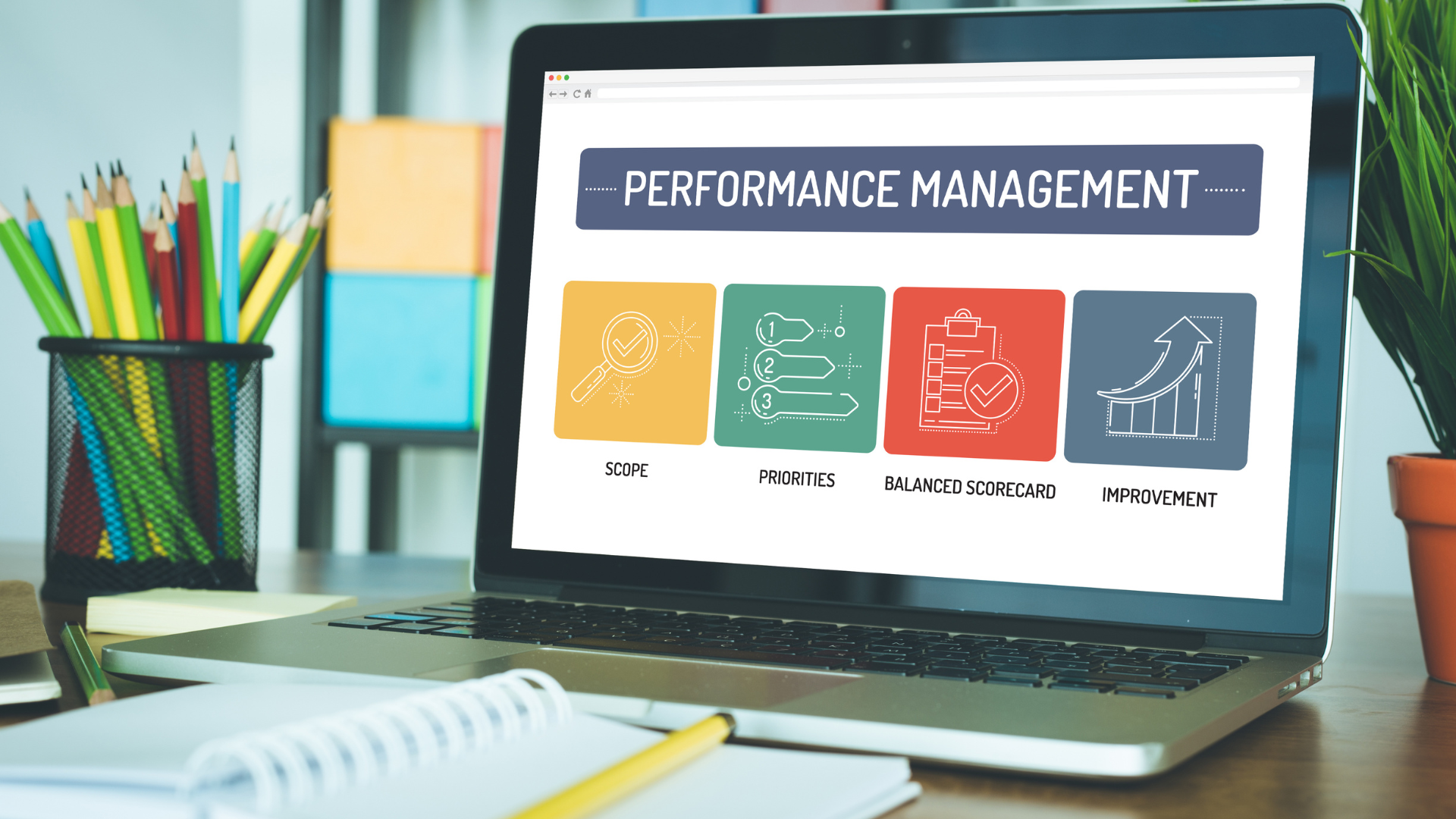Performance Management
People and talent management has significantly evolved over the last few years. Organizations have shifted to hybrid work opportunities and are tapping into global talent to increase the strength of their teams. As a result, managing the performance of your team, whether they are in-person or remote workers, is a skill that is necessary for every leader to guide a successful team.
Providing performance feedback to your team is one of the most important things you can do as a leader. It gives people purpose, meaning, and the opportunity for growth. In this series of articles, we cover how to:
- Align your performance management strategy with your overall business goals.
- Create a straightforward and consistent employee performance process.
- Utilize talent mapping to maximize performance.
- Build accountability and run an effective check-in.
Throughout this series, we will also provide helpful resources, performance management plan templates, and practical examples to ensure your organization and leadership team have the confidence and skills to manage performance.
Performance Management
Performance management is the ongoing process between an employee and their manager, outlining expectations and helping them meet objectives. But it doesn’t stop there. To truly achieve high performance, you need to have goal alignment.
To cultivate long-term success, everyone must work together in a cohesive way. Prioritizing organizational goals should be your first step. From there, you work your way down and identify and set team and individual goals that align with your overall objectives.
Individual goals should have key performance indicators so employees and their managers can clearly see whether goals and role responsibilities are being met. KPIs should be intentional, measurable, and reflect the targets for the team and organization.
Whether they are organizational or individual, goals are not something you should set and forget. Visibility of goal progress drives higher performance. To be effective, display your goals in a prominent and accessible way. Treat them as the foundation of all the work you do every day. As a result, your team will be more committed to action plans and more invested in the overall success of the company. This is the foundation for a culture of high accountability.
Effective Performance Management
We often hear leaders say they feel their current process for managing performance is a waste of time. Why? They are too complicated and lack discipline and follow-through. The performance review process doesn’t need to be complicated.
Complex evaluation processes and ratings don’t necessarily measure employee performance more accurately. In fact, they tend to reveal more about the evaluator than the employee. Keep it simple.
Some key areas of focus to achieve effective performance management include:
- Core values
- Individual KPIs
- Priorities (skills development, continuous improvement, strategic execution)
Focus on areas such as how core values fit, how individuals are achieving their priorities that were set out for the year, and how they’re doing in their own personal and professional development. Investing in these priorities will shift your team’s performance from average to superior.
There are three key leadership behaviors required throughout the performance review process:
- Model the way
- Enable others to act
- Encourage the heart
As a leader, it’s your responsibility to engage and motivate your employees to reach their highest potential. How is it done? A mindset that focuses on coaching and developing the individuals on your team. The key is to give your team the confidence and capability to reach a level of autonomy and ownership of their work.
Once that’s achieved, your work environment will be more fulfilling, collaborative, and supportive. Ultimately, creating a high-performance culture with teammates who are just as dedicated to achieving success as you are as their manager.
Accountability Review and Succession Planning
You work hard to attract and retain great people. Accountability is crucial to ensuring your employees feel supported and valued. It’s also imperative to establish employees’ responsibilities and identify if and where any gaps appear.
Combining performance reviews with talent mapping is the key to success. A talent map is a strategic view of an organization's talent. Think of it like a review of all employees in terms of performance, engagement, and future roles.
When you add this more strategic element to your standard performance feedback process, you’ll begin to look at things from a longer-term perspective. This will develop your leadership planning and help drive succession and pipeline planning.
It takes clear performance goals coupled with regular performance feedback to influence motivation and performance. Frequent performance discussions and performance reviews are necessary to provide timely feedback and effective coaching.
Regular feedback:
- Motivates employees
- Allows people to know if they are making progress.
- Increases motivation to perform thanks to a challenging goal and accurate and timely feedback.
Role scorecards are an essential tool to align your team and create a shared purpose. When you publish, regularly review, and then follow up on priorities set in role scorecards, you provide clarity.
- What goal are we working towards?
- Why am I invested in the impact of achieving the goal?
- What is my role?
- How will we operate effectively moving forward?
Transparency with your employees is powerful. When scorecard objectives are clear and measurable, a manager’s job of evaluating employee performance is fair and non-personal. This is key to creating a team of high performers.










